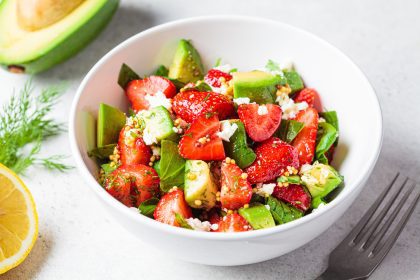Let’s face it — asking most people to give up their morning coffee is like suggesting they start their day by jumping into an ice bath. Not gonna happen. If you’ve joined the intermittent fasting bandwagon but worry about parting ways with your beloved brew, I’ve got some perky news for you.
The surprising truth about coffee during fasting windows
That steaming cup of black coffee? It’s actually getting a green light from nutrition experts for your fasting periods. When you sip on plain black coffee, your body stays in that coveted fasting state, keeping all those fat-burning benefits intact.
But before you celebrate by ordering a caramel macchiato with extra whipped cream, let’s pump the brakes. Those fancy coffee shop concoctions can pack a whopping 500 calories, which definitely throws your fasting goals out the window faster than you can say “venti.”
Think of your fasting window like a metabolic reset button. Black coffee presses that button just fine, but once you start dumping sugar, cream, and flavored syrups into the mix, you’re essentially canceling the reset.
The black coffee advantage
Your plain cup of joe contains virtually zero calories, which means it won’t trigger the insulin response that breaks a fast. Even better, coffee can actually enhance some of the benefits you’re seeking from intermittent fasting.
Your morning brew might help kick your metabolism into higher gear. The caffeine in coffee can boost your metabolic rate by 3-11%, giving your fat-burning potential a gentle nudge in the right direction.
Plus, when that midday hunger starts growling during your fasting window, coffee might help you push through. Many people report that caffeine helps blunt hunger pangs, making those fasting hours a bit more bearable. Though let’s be honest — results vary, and coffee isn’t magic hunger-erasing potion.
Customizing coffee without breaking your fast
Missing that creamy sweetness in your cup? We get it. Plain black coffee can taste like bitter disappointment if you’re used to the good stuff.
Try adding a dash of cinnamon or a few drops of vanilla extract for flavor without the calories. These additions won’t spike your insulin or kick you out of your fasting state.
Some intermittent fasting enthusiasts swear by adding a teaspoon of MCT oil to their coffee. While technically this adds calories, MCT oil doesn’t significantly impact blood sugar levels and may actually enhance ketone production — the alternate fuel your body creates when you’re fasting.
A sprinkle of stevia or monk fruit sweetener can add sweetness without the insulin spike that sugar causes. Just keep it minimal and be aware that even zero-calorie sweeteners might trigger cravings in some people.
The unexpected perks beyond weight loss
Your morning coffee ritual might be doing more than just helping with your fasting goals. Regular coffee consumption has been linked to reduced inflammation in the body — coincidentally, so has intermittent fasting. Double win.
Some research suggests that moderate coffee intake is associated with a lower risk of developing type 2 diabetes and cardiovascular disease. When paired with the similar benefits of intermittent fasting, your simple cup of black coffee might be a powerful health ally.
Coffee contains antioxidants that help fight oxidative stress in your body. These compounds, along with the metabolic benefits of fasting, create a potential one-two punch against cellular damage.
Listening to your unique body signals
While black coffee gets the general thumbs-up during fasting, your mileage may vary. Some people find that caffeine makes them jittery or anxious during fasting periods when there’s no food to buffer its effects.
If you have diabetes, monitor your blood sugar response carefully. While coffee generally has minimal impact on blood glucose, individual responses can differ dramatically.
Pay attention to how coffee affects your sleep quality too. Caffeine has a half-life of about 5-6 hours, meaning half the caffeine from your 2 PM cup is still in your system at 7-8 PM. Poor sleep can sabotage weight loss efforts faster than you can say “insomnia.”
Building your ideal fasting routine
The popular 16:8 method gives you an 8-hour eating window and 16 hours of fasting time. Black coffee can be your ally during those fasting hours, helping you stay on track without feeling deprived.
Don’t feel pressured to become a coffee drinker if you aren’t already. Plain tea, water, and other non-caloric beverages work just fine during fasting periods.
Remember that sustainable habits beat perfect ones every time. If a splash of milk in your coffee makes the difference between sticking with intermittent fasting long-term or giving up after three days, that tiny splash might be worth it.
Finding your fasting sweet spot
Ultimately, intermittent fasting isn’t about suffering through hunger pangs while clutching a bitter cup of black coffee. It’s about finding an eating pattern that works for your lifestyle and goals.
Some people thrive on longer fasts with nothing but black coffee and water. Others do better with shorter fasting windows that still allow their favorite coffee additions.
The best approach is the one you’ll actually stick with. A consistent, sustainable fasting practice with your favorite coffee ritual included will always beat a perfect but miserable protocol that you abandon after a week.
So go ahead and enjoy that cup of black coffee during your fast. Your taste buds might need a minute to adjust, but your body will thank you for the flavorful company during those fasting hours.
















